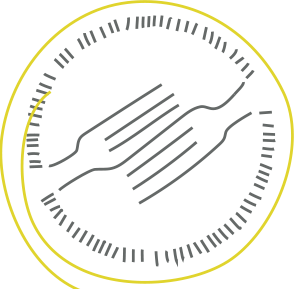The Illness Superstore
It was the Q and A at one of my Food Solutions events in 2011—Navigating Cancer. A woman, probably in her 30’s with stage 4 cancer, asked, “If I didn’t come to this event, where could I get this kind of information and all of these resources?” For a moment I was speechless (a rarity). I then replied, “I wish I had an answer for you. But I honestly don’t know a place to send you where you can get A-Z information on an illness you are living with.” Not that Food Solutions offers all of that information, but if you combine the experiences, both personal and professional, of all the experts in the room, you pretty much had the A-Z. Then with my typical wit I added, “What this country really needs is a Best Buy for illness. Instead of electronics, you could come to our superstore and have, at your fingertips, every resource available to you for your disease.”
I have been thinking about this question (and my answer) for a long time now. It’s really not a bad idea. So I figured that I would create my Illness Superstore on paper (a very rough draft).
Step 1: You get diagnosed with an illness (a separate conversation)
Step 2: You find the Illness Superstore near you
Step 3: You call to make an appointment with your disease specific “wellness navigator”
Step 4: You arrive at the store, are greeted by your navigator and are walked through every section
Aisle one—Western medical care resources for additional opinions (never good to go with one opinion)
Aisle two—Integrative medical care resources for additional opinions (always good to have a medical expert who combines Western medicine with more alternative approaches)
Aisle three—Alternative care options (such as energy healing, Chinese herbs, etc.)
Aisle four—Food solutions
Aisle five—Exercise solutions
Aisle six—Psychological solutions (we all need that!)
Aisle seven—Supportive organizations (not for profits, etc.)
Aisle eight—Additional resources such as books, links, Smart Phone applications
Aisle nine—Optional “buddy pairing” where you will be matched with a person who is going through the same thing you are—sucks being alone
Step 5: Create a plan of action with your navigator and implement
Step 6: Decision making and action!!!
Step 7: Regular follow-up with your navigator
The problem and a real one albeit: We are sick and credible resources are hard to come by. I know first hand! I live with a kidney disease that took 10 years to properly diagnose. If the Illness Superstore existed, perhaps I wouldn’t have had to: (1) exhaust myself with the “BEST DOCTORS” in NYC (who weren’t the BEST at all); (2) have two unnecessary surgeries; (3) spend 5 days at the Cleveland Clinic in attempt to properly diagnose this disease gone awry (no luck there); (4) spend countless hours researching; (5) suffer emotionally needing to see a therapist to help manage the psychological stress of being sick and not having the right support or answers. And that’s just the tip of the iceberg! To boot, the stress this caused my family, including my husband, my kids and my parents is still hard to swallow.
I feel for this woman who asked the question, on a very deep level. And I wish the answer was an easy one but it is not. When you get sick, consider yourself hired for a full time job that you don’t want. After all that I have been through both personally and with my clients, I have this advice for you if you get diagnosed with an illness (cause we don’t have an illness superstore YET):
- Either decide to be your own advocate or enlist someone to do it
- Seek an integrative internist who can help steer your ship
- Go for a second and third opinion from a specialist
- A doctor’s affiliation with a teaching hospital is a good thing
- Consider having a fellow on your team of doctors*
- Once you understand your treatment/healing options, research the heck out of them; don’t make any choices on impulse
- Align yourself with disease-specific associations and call on all of their resources
- Seek psychological support if you can
- BE GOOD TO YOURSELF and continue to do what makes you feel good
- And cry your eyes out if you need to. You are allowed. Life can suck
You see, when you get diagnosed with an illness, the first thing our healthcare system should do is appoint a navigator to a patient. But they don’t. In fact, they make the whole business of being sick as hard as it can possibly be. So that being said follow my pointers above cause I have been there (and I live the challenge daily). Hopefully I can shine a little light.
In the end, every one of my experiences both good and bad, has lead me to where I am today. As challenging as it has been, I wouldn’t trade it (well, maybe a few things) for my life is more enriched in so many ways. And I have the tools to help others in a unique way—from the eyes of a patient and a practitioner.
*Fellows are Doctors In Training (or DIT as I like to say). When I started with my current team of doctors, the lead nephrologist brought along a fellow. First thing I thought was, “I don’t want any DIT on my case. I have been through enough and want seasoned doctors.” Well, boy was I wrong. This DIT was the one who finally gave me the proper diagnosis after 10 years. He was fresh, curious and hungry!!! He is my hero!

